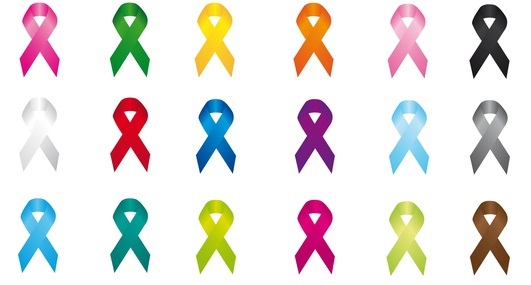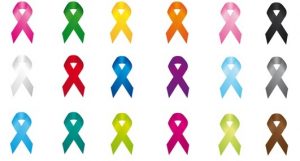
Katie Hèbert, Staff Writer|
October has come to an end. Along with the disappearance ofHalloween merchandise and celebrations (and the very early excitement of Christmas), the amount of pink supporting Breast Cancer Awareness Month has also come to a close.
For the past month, I’ve watched organizations, stores, bus terminals, and so many other places and people decorate in pink ribbons in acknowledgement of Breast Cancer Awareness Month. I am thrown back to middle school where everyone wore “i love boobies” bracelets over their silly bandz in solidarity, noticing how efforts and awareness have not really evolved since.
Don’t get me wrong, this amount of charity, care, and compassion dedicated toward those affected by this horrible disease is truly admirable. I am blown away by the amount of effort people put into helping those affected by breast cancer. But for what reason does everyone choose breast cancer awareness as their immediate philanthropy? Cancer (more specifically, Breast Cancer) gets highly romanticized and sexualized, especially during October. It comes from a good mindset when people make particular merchandise to sell as fundraisers, but student organizations selling shirts saying “For Tits and Giggles” does not provide the right support.
My mother passed away from cancer on August 18, 2018. At the time of being notified, I had just settled back in Oneonta, gearing up and preparing for my senior year of my undergraduate education. While it wasn’t specifically breast cancer, I watched my mother get the diagnosis of stage four cancer on Christmas Eve of 2017. I watched my mother lose her eyesight, struggle with her speech, lose the ability to eat solid foods, and thus be given a feeding tube. I watched my mother go through intense amounts of radiation and chemotherapy, only for the cancer to spread and for her to begin the process of immunotherapy. I watched as the immunotherapy didn’t work, causing my mother to have water on the brain, pneumonia, and obtain cancerous cells in the spinal fluid and brain.
I watched my mother spend weeks in the intensive care unit, getting many late night phone calls regarding complications, only to soon be moved to a hospice care unit. I share this experience of losing my mother so recently to remind people that cancer isn’t cute, funny, flirty or a viable option for a marketing scheme. When I made the news public, many peers reached out with similar experiences of losing a parent or loved one to cancer, with similar events unfolding such as described. I have seen stories similar to mine to those affected by breast cancer, yet their narratives of painful procedures and emotions have become watered down through the flirtatious advertisement of breast cancer awareness.

It’s not about “saving the boobies” or the “tatas” or whatever word for breasts people decide to use–it’s about saving the person. There are many survivors of breast cancer who entered remission no longer having breasts. Does their worth automatically diminish because they didn’t leave treatment with the very part of their body that was ill? Alice Zheng, writer for Equal Writes, says, “We all know that sex sells, but isn’t using sex to fundraise for a deadly disease a bit too much? [Many] campaigns walk the thin line of raising awareness of breast cancer or raising awareness of breasts. Breast cancer is a serious fight and receives a lot of attention. Some of this attention is geared towards drawing the attention of youth who don’t typically don’t think about it, and we all know that young people jump on any sexual imagery like crows to the slaughter.”
It’s not rocket science to notice that female bodies are intensely objectified, but especially in the awareness around breast cancer; Arianna Timko raises awareness about a giant double standard, “[I have] never seen a campaign for prostate cancer awareness using a picture of a male where his prostate is the focus and his face is cut out as though he isn’t even a full person. This is the case despite the fact that the prostate is a sexual organ and breast and prostate cancer are diagnosed at about the same rate per year.”
It feels like these “I heart boobies” campaigns are specifically meant to draw heterosexual male-identified folks into the fight against breast cancer. What does it say about these campaigns’ perceptions of men if they think the only effective way to get men’s attention about breast cancer is to sexualize it so much so that the focus is on breasts as a sexual object and not the woman to whom those breasts are a part? These hypersexual campaigns also erase those affected by cancer who aren’t assigned female at birth-male bodies can also get diagnosed with breast cancer! Yet, we don’t see awareness for those who don’t identify as cisgender women in regards to breast cancer, because it isn’t attractive or commodifying.
For a horrible illness like this to get romanticized like it does when it comes to Breast Cancer Awareness Month is disgusting. Bodies assigned female at birth are sexualized at such an early age. For a disease that can end someone’s life to be revolved around the hypersexualization of said body contributes to systemic cissexism. I would give anything to have my mom back here with me, and for her body to be potentially admired for not losing her breasts and her trauma be undermined for a marketing plan, is insulting.
You can do the work without exploiting a terrible illness and removing the humanity from people (because it’s been done before). While the medical field has its own issues of sexism, racism, and other prejudices, it also puts the person’s life before the conventional beauty standards of what a “perfect body” should look like. A healthy, living body is a perfect body—period.
If you’re doing the work, thank you—but make sure it’s done right.
(I love you Mom, I miss you everyday.)
beautiful nd insightful work. katie hebert you are a gem in every sense of the word.